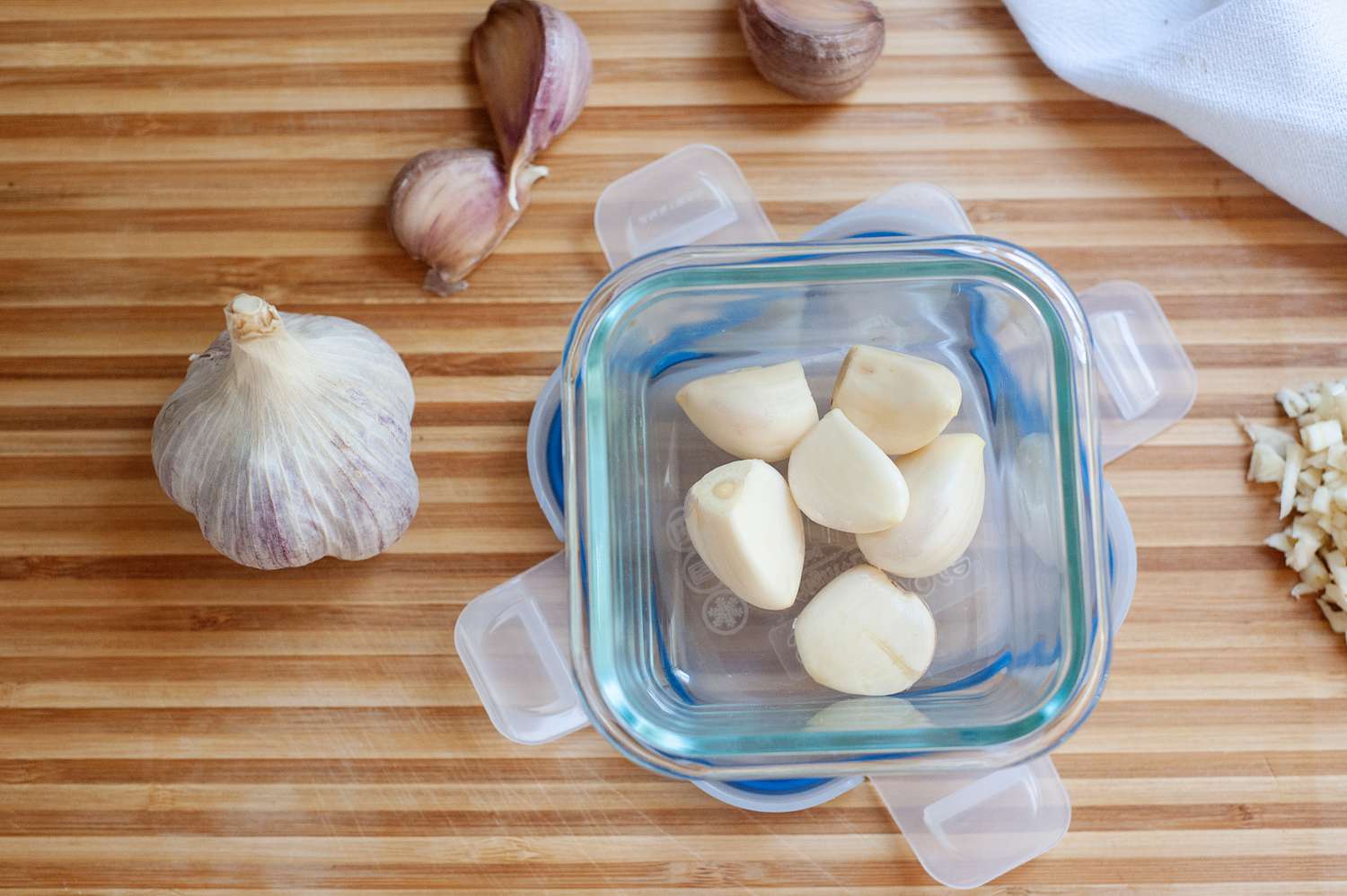

Articles
How To Store Garlic Cloves Long Term
Modified: January 6, 2024
Learn how to store garlic cloves long term with these helpful articles. Find out the best methods to keep your garlic fresh and flavorful for months.
(Many of the links in this article redirect to a specific reviewed product. Your purchase of these products through affiliate links helps to generate commission for Storables.com, at no extra cost. Learn more)
Introduction
Garlic is not only a popular ingredient in many culinary dishes, but it also has numerous health benefits. Its distinctive flavor and aroma make it a staple in kitchens around the world. However, fresh garlic cloves have a relatively short shelf life, which means that they can spoil if not stored properly. That’s where the concept of long-term storage comes in.
Storing garlic cloves long term is a great way to ensure that you have a steady supply of this flavorful ingredient on hand whenever you need it. Whether you have a surplus of garlic from your garden or want to take advantage of a sale at the grocery store, knowing how to properly store garlic cloves will help preserve their freshness and flavor for an extended period of time.
Not only does long-term storage prevent garlic cloves from spoiling, but it also allows them to retain their health benefits. Garlic contains numerous compounds that have been shown to have anti-inflammatory, antibacterial, and antioxidant properties. By storing garlic cloves properly, you can maintain these beneficial compounds and enhance their culinary and medicinal uses.
In this article, we will explore different methods for storing garlic cloves long term. We will discuss how to choose the right garlic cloves for storage and the preparation process. We will also cover four popular storage methods: storing garlic cloves in a cool, dry place; storing them in oil; freezing them; and dehydrating them. Whether you prefer the convenience of frozen garlic or the versatility of dehydrated garlic, there will be a storage option that suits your needs.
By following the techniques and guidelines outlined in this article, you can ensure that your garlic cloves stay fresh, flavorful, and ready to enhance your favorite recipes. So, let’s dive in and discover how to store garlic cloves long term!
Key Takeaways:
- Storing garlic cloves long term ensures a continuous supply of flavorful, healthy garlic for cost savings, convenient access, and culinary versatility. Choose the right cloves and explore various storage methods to enjoy the benefits year-round.
- Whether you prefer traditional storage in a cool, dry place, infusing oil with garlic flavor, freezing for convenience, or dehydrating for versatility, knowing how to store garlic cloves long term ensures a steady supply of this essential ingredient with preserved flavor and health benefits.
Read more: How To Store Cloves Of Garlic
Why Store Garlic Cloves Long Term?
While garlic cloves are readily available in grocery stores and markets throughout the year, there are several reasons why storing them long term can be beneficial. Let’s take a closer look at why you might want to consider storing garlic cloves for an extended period of time.
1. Cost Savings: Buying garlic cloves in bulk or when they are on sale can save you money in the long run. By storing them properly, you can take advantage of lower prices and have a constant supply of garlic without worrying about it going bad.
2. Convenient Access: Having stored garlic cloves means you have them readily available whenever you need them. Instead of running to the store every time a recipe calls for garlic, you can simply reach into your own stash and add it to your dishes.
3. Flavourful Cooking: Freshly harvested garlic cloves often have a more vibrant and robust flavor compared to store-bought ones. By storing garlic cloves long term, you can preserve their freshness and pungency, allowing you to add intense flavor to your favorite dishes.
4. Continuous Supply: If you grow your own garlic, storing it long term ensures that you can enjoy the fruits of your labor throughout the year. By properly storing your harvested garlic cloves, you can extend their shelf life and enjoy a continuous supply even after the growing season is over.
5. Health Benefits: Garlic is known for its health-promoting properties, such as boosting immune function, reducing inflammation, and supporting heart health. By storing garlic cloves long term, you can preserve the beneficial compounds and ensure that you have a constant supply of this nutritional powerhouse.
6. Culinary Versatility: Garlic is a versatile ingredient that can be used in a wide range of culinary preparations. Storing garlic cloves long term allows you to experiment with different recipes and explore new dishes without worrying about running out of garlic.
Now that we understand the benefits of storing garlic cloves long term, let’s move on to the next section and learn how to choose the right garlic cloves for storage and prepare them for long-term preservation.
Choosing the Right Garlic Cloves for Long-Term Storage
When it comes to storing garlic cloves long term, selecting the right cloves is crucial for successful preservation. Here are some important factors to consider when choosing garlic cloves for long-term storage:
1. Quality: Choose garlic cloves that are firm, plump, and free from any signs of mold or blemishes. Avoid cloves that are soft or have sprouted as they may not store well.
2. Variety: Different garlic varieties have varying flavors, textures, and storage characteristics. Softneck garlic varieties, such as Silverskin and Artichoke, tend to have longer storage lives compared to hardneck varieties like Rocambole and Porcelain. Consider the storage potential of the garlic variety you have or wish to grow.
3. Size: Opt for medium to large-sized cloves for long-term storage. While small cloves can be stored, they tend to dry out faster and may not retain their flavor and texture as well as larger cloves.
4. Skin Condition: Look for garlic cloves with tight, intact skin. The outer papery skin serves as a protective layer, helping to keep the cloves moisture-free and prevent spoilage.
5. Organic or Homegrown Garlic: If possible, choose organic garlic cloves or garlic that you have grown yourself. Organic garlic is generally free from chemical pesticides or treatments, and homegrown garlic allows you to have control over the growing and handling process, ensuring optimal freshness and quality.
It’s important to note that when selecting garlic cloves for long-term storage, you should avoid using garlic that has been treated with sprout inhibitors or has been exposed to moisture for an extended period. Such garlic cloves may not store well and could impact the overall quality of your stored garlic.
Once you have chosen the right garlic cloves, it’s time to prepare them for long-term storage. In the next section, we will explore the different ways you can prepare garlic cloves to ensure their optimal preservation and flavor.
Preparing Garlic Cloves for Long-Term Storage
Proper preparation is essential to ensure the long-term storage of garlic cloves. By following these steps, you can maximize the lifespan and quality of your stored garlic:
1. Harvesting: If you are growing your own garlic, it’s important to harvest it at the right time. Garlic bulbs should be mature with fully formed cloves, but not overly dried or starting to sprout. Gently loosen the soil around the bulbs, being careful not to damage the cloves, and remove them from the ground.
2. Curing: After harvesting, garlic bulbs should be cured before storing. Lay the bulbs in a well-ventilated area, away from direct sunlight, and let them dry for about two to three weeks. Curing allows excess moisture to evaporate and helps develop a protective papery skin around the cloves.
3. Cleaning: Once the garlic bulbs are fully cured, gently brush off any remaining dirt or loose skin. Avoid washing the bulbs with water as excessive moisture can promote mold growth and reduce storage life.
4. Separating into Cloves: Carefully separate the cloves from the garlic bulbs. Remove any cloves that are damaged, soft, or moldy as they can affect the quality of the stored garlic. Be gentle during this process to prevent bruising or crushing the cloves.
5. Trimming: Trim off the roots and any excess stem or neck from each garlic clove. This helps reduce moisture retention and prevents potential rotting.
Following these steps will ensure that your garlic cloves are properly prepared for long-term storage. Now it’s time to explore the different storage methods available to preserve the freshness and flavor of your garlic cloves. In the next sections, we will discuss four popular options: storing garlic cloves in a cool, dry place; storing them in oil; freezing them; and dehydrating them.
Option 1: Storing Garlic Cloves in a Cool, Dry Place
One of the simplest and most traditional methods of storing garlic cloves long term is by keeping them in a cool, dry place. This method works well for garlic cloves that are fully cured and have a papery skin. Here’s how to do it:
1. Choose the Right Location: Find a cool and dry place in your home that has good air circulation. Ideally, the temperature should be between 50 to 60°F (10 to 15°C) with low humidity. Avoid areas that are prone to moisture, such as the kitchen near the stove or sink.
2. Prepare Storage Containers: Use a mesh bag, a breathable container, or a woven basket to store the garlic cloves. These containers allow proper airflow, preventing excess moisture buildup and potential rot.
3. Arrange the Garlic Cloves: Place the garlic cloves in a single layer in the chosen container. Avoid overcrowding the cloves, as this can lead to moisture retention and spoilage. If you have a large quantity of cloves, consider using multiple containers or separating them into batches.
4. Store in a Cool, Dry Place: Put the container of garlic cloves in the designated cool, dry location. Avoid exposing the cloves to direct sunlight, as this can degrade their flavor. Check the cloves periodically to ensure that none have started to sprout or show signs of spoilage.
By storing garlic cloves in a cool, dry place, you can expect them to last several months to a year, depending on the variety and the storage conditions. Regularly check the cloves for any signs of deterioration and remove any cloves that have begun to sprout or show signs of mold.
Remember, using this method requires selecting fully cured garlic cloves with intact skin. If your garlic cloves are not thoroughly dried or have damage to the papery skin, consider alternative storage methods to ensure their long-term preservation.
Now, let’s move on to the next storage option: storing garlic cloves in oil.
Store garlic cloves in a cool, dark, and well-ventilated place, such as a pantry or cellar. Avoid storing them in the refrigerator, as this can cause them to sprout. Keep them in a mesh bag or open container to allow for air circulation.
Read more: How To Store Garlic Long Term
Option 2: Storing Garlic Cloves in Oil
Storing garlic cloves in oil is a popular method that not only preserves the cloves but also infuses the oil with a rich garlic flavor. This method is convenient and allows you to have both flavored oil and garlic cloves readily available. Here’s how to store garlic cloves in oil:
1. Choose the Right Oil: Select a neutral oil with a high smoke point, such as olive oil, canola oil, or vegetable oil. Avoid using oils with strong flavors, such as sesame oil or walnut oil, as they can overpower the garlic flavor.
2. Peel and Prepare the Garlic Cloves: Peel the garlic cloves and trim off any root or stem remnants. Ensure that the cloves are clean, dry, and free from any signs of mold or damage.
3. Sterilize the Storage Container: It’s essential to use sterilized containers to prevent bacterial growth. Boil the storage containers or jars in water for a few minutes, then let them air dry completely before use.
4. Add the Garlic Cloves to the Container: Place the garlic cloves into the sterilized container, ensuring that they are fully submerged in the oil. Leave some headspace at the top for expansion and to prevent leakage when sealing the container.
5. Cover and Store: Seal the container tightly with a lid or cork and store it in the refrigerator. The cool temperature will help slow down the oxidation process and preserve the cloves. Check the container periodically and discard any cloves that show signs of spoilage, such as mold growth or off odors.
When stored properly, garlic cloves in oil can last for several weeks to a few months in the refrigerator. It’s important to note that garlic cloves stored in oil have the potential to develop botulism, a dangerous bacterial infection. To reduce the risk of botulism, follow these guidelines:
– Always store garlic cloves in oil in the refrigerator, as cold temperatures help inhibit bacterial growth.
– Use the cloves within the recommended storage time.
– Discard any garlic cloves in oil that have strange odors, unusual colors, or signs of mold or fermentation.
– Use clean utensils when handling the garlic cloves to prevent cross-contamination.
By following these safety precautions, you can enjoy the convenience and flavor of garlic cloves stored in oil. However, if you prefer a longer shelf life or want to avoid the risk of botulism, consider alternative storage methods such as freezing or dehydrating garlic cloves.
Next, let’s explore the option of freezing garlic cloves for long-term storage.
Option 3: Freezing Garlic Cloves
Freezing garlic cloves is a convenient and effective method to extend their shelf life and preserve their flavor. This storage option allows you to have garlic cloves readily available whenever you need them. Here’s how to freeze garlic cloves:
1. Peel and Prepare the Garlic Cloves: Peel the garlic cloves and remove any root remnants. Ensure that the cloves are clean, dry, and free from any signs of mold or damage.
2. Choose the Freezing Method: There are two popular methods for freezing garlic cloves: whole cloves or minced cloves. Select the method that best suits your cooking needs.
– Whole Cloves: If you prefer to use whole cloves, simply place them in a freezer-safe bag or airtight container without any additional processing.
– Minced Cloves: If you use minced garlic frequently in your cooking, you can freeze minced cloves for added convenience. Mince the garlic cloves using a sharp knife or a garlic press, and then spread the minced garlic on a baking sheet lined with parchment paper. Place the baking sheet in the freezer for a few hours until the minced garlic is frozen. Once frozen, transfer the minced garlic into a freezer-safe bag or container.
3. Packaging and Labeling: Regardless of the method you choose, be sure to label the freezer-safe bags or containers with the date and quantity of garlic cloves. This will help you keep track of freshness and ensure that you use them within the recommended time frame.
4. Freezing: Place the bags or containers of garlic cloves in the freezer. It’s best to store them in a single layer, allowing for quick and even freezing. Avoid overcrowding the cloves, as this can cause them to freeze together in clumps.
When stored properly, frozen garlic cloves can retain their flavor and quality for up to several months. However, it’s essential to note that freezing can slightly change the texture of the cloves, making them slightly softer when thawed. This change in texture may be more noticeable in minced garlic.
To use frozen garlic cloves, simply remove the desired amount from the freezer and thaw them in the refrigerator for a few hours or use them directly in your recipes without thawing. Frozen garlic cloves work well in cooked dishes such as soups, stews, sauces, and roasted vegetables.
Now that we have covered freezing as a storage option, let’s explore the method of dehydrating garlic cloves to preserve their shelf life.
Option 4: Dehydrating Garlic Cloves
Dehydrating garlic cloves is a fantastic method to prolong their shelf life while preserving their flavor and aroma. Dehydrated garlic cloves are versatile and can be used in various recipes, including spice blends, rubs, and marinades. Here’s how to dehydrate garlic cloves:
1. Peel and Prepare the Garlic Cloves: Peel the garlic cloves and remove any root remnants. Ensure that the cloves are clean, dry, and free from any signs of mold or damage.
2. Slice or Crush the Garlic Cloves: You have two options for dehydrating garlic cloves: slicing or crushing. Choose the method that works best for you.
– Slicing: Use a sharp knife to slice the garlic cloves into thin, even slices. This method works well if you want to use the dehydrated garlic as garnish or for a slightly milder flavor.
– Crushing: Crush the garlic cloves using a garlic press or a mortar and pestle. This method is ideal for obtaining a strong and concentrated garlic flavor.
3. Preheat the Dehydrator: Preheat your dehydrator according to the manufacturer’s instructions. The optimal temperature for dehydrating garlic cloves is around 115°F (46°C).
4. Arrange the Garlic Cloves: Place the sliced or crushed garlic cloves in a single layer on the dehydrator trays. Ensure that the cloves are evenly spaced to allow proper airflow and dehydration.
5. Dehydrate the Garlic Cloves: Put the trays into the dehydrator and let the garlic cloves dry for approximately 6 to 8 hours. Check regularly for dryness, and remove any pieces that are completely dehydrated.
6. Cool and Store: After dehydrating, allow the garlic cloves to cool completely before storing them. Once cooled, transfer the dehydrated garlic into airtight containers or glass jars. Store them in a cool, dry place away from direct sunlight.
When stored properly, dehydrated garlic cloves can last for several months to a year. To ensure optimal flavor retention, keep the containers tightly sealed and avoid exposing them to moisture.
To use dehydrated garlic cloves, simply rehydrate them before adding them to your recipes. You can soak the cloves in water for a few minutes until they soften, or add them directly to dishes with enough liquid to allow them to rehydrate during cooking.
Dehydrated garlic cloves are a convenient and versatile pantry staple that adds robust flavor to a wide variety of dishes. Experiment with different recipes and explore the bold flavors that dehydrated garlic brings to your culinary creations.
Now that we have covered the different storage methods, let’s summarize the key points and conclude our article on storing garlic cloves long term.
Conclusion
Storing garlic cloves long term is a practical way to ensure a steady supply of this flavorful ingredient while preserving its freshness and nutritional benefits. By choosing the right garlic cloves and properly preparing them, you can extend their shelf life and have garlic readily available whenever you need it.
There are several storage options to consider when it comes to long-term storage of garlic cloves. Storing them in a cool, dry place is a simple and traditional method that works well for fully cured cloves. It allows you to keep garlic on hand for several months, retaining its flavor and aroma.
Storing garlic cloves in oil offers the added benefit of infusing the oil with a rich garlic flavor. However, it’s essential to follow safety precautions to prevent the growth of harmful bacteria, such as botulism.
Freezing garlic cloves is a convenient option that maintains their flavor and quality for several months. Whether you choose to freeze whole cloves or minced garlic, freezing offers the versatility of having garlic readily available whenever you need it.
Dehydrating garlic cloves is another excellent method that preserves their flavor and extends their shelf life. Dehydrated garlic cloves can be used in various recipes and add a concentrated garlic flavor to dishes.
No matter which storage method you choose, it’s important to monitor the garlic cloves regularly and discard any that show signs of spoilage.
In conclusion, knowing how to store garlic cloves long term ensures that you always have this essential ingredient available while maintaining its flavor, aroma, and health benefits. Whether you prefer the simplicity of storing garlic in a cool, dry place or the versatility of freezing or dehydrating, these methods allow you to enjoy the vibrant flavor of garlic in your favorite recipes throughout the year. Experiment with different storage methods and discover which works best for your needs. With proper storage, you’ll always have the power of garlic at your fingertips.
Frequently Asked Questions about How To Store Garlic Cloves Long Term
Was this page helpful?
At Storables.com, we guarantee accurate and reliable information. Our content, validated by Expert Board Contributors, is crafted following stringent Editorial Policies. We're committed to providing you with well-researched, expert-backed insights for all your informational needs.
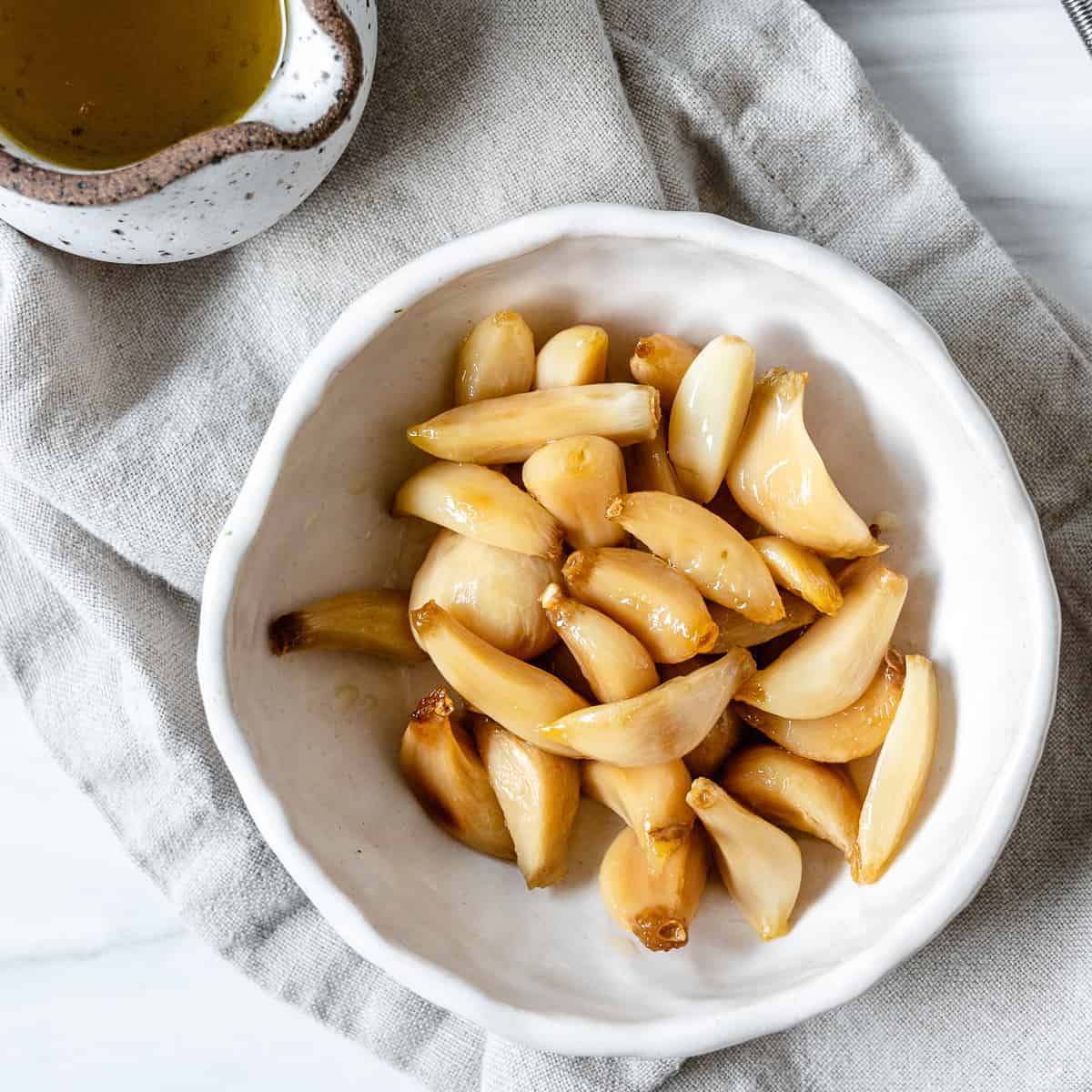
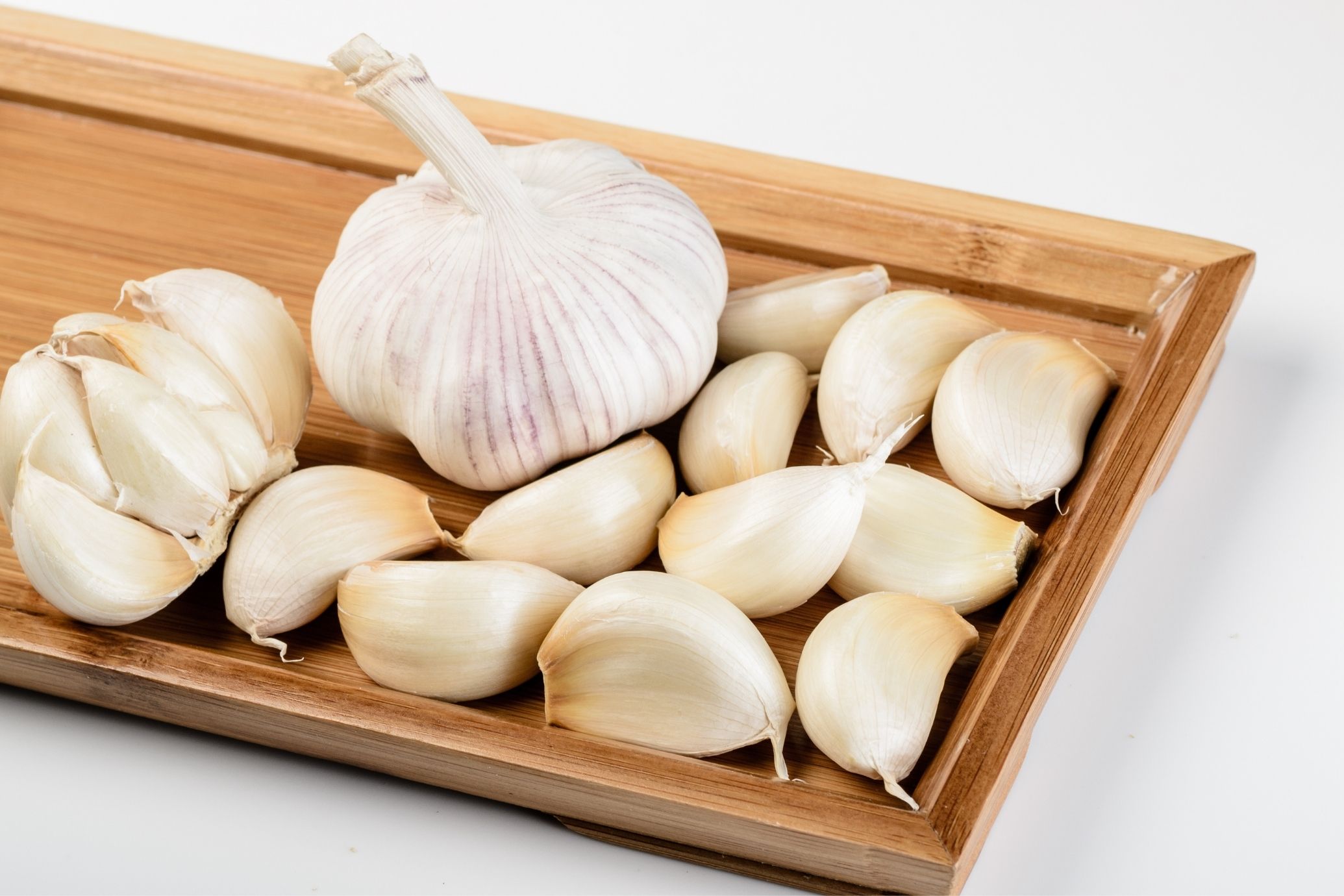
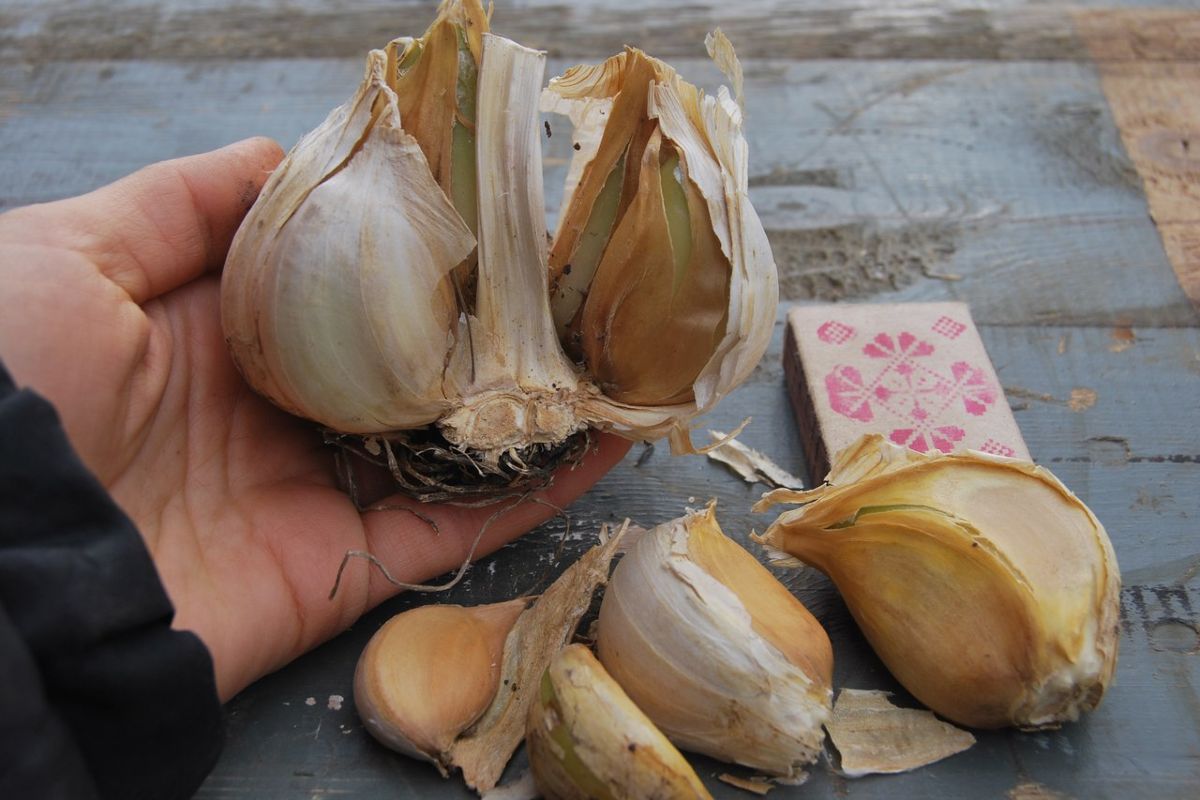
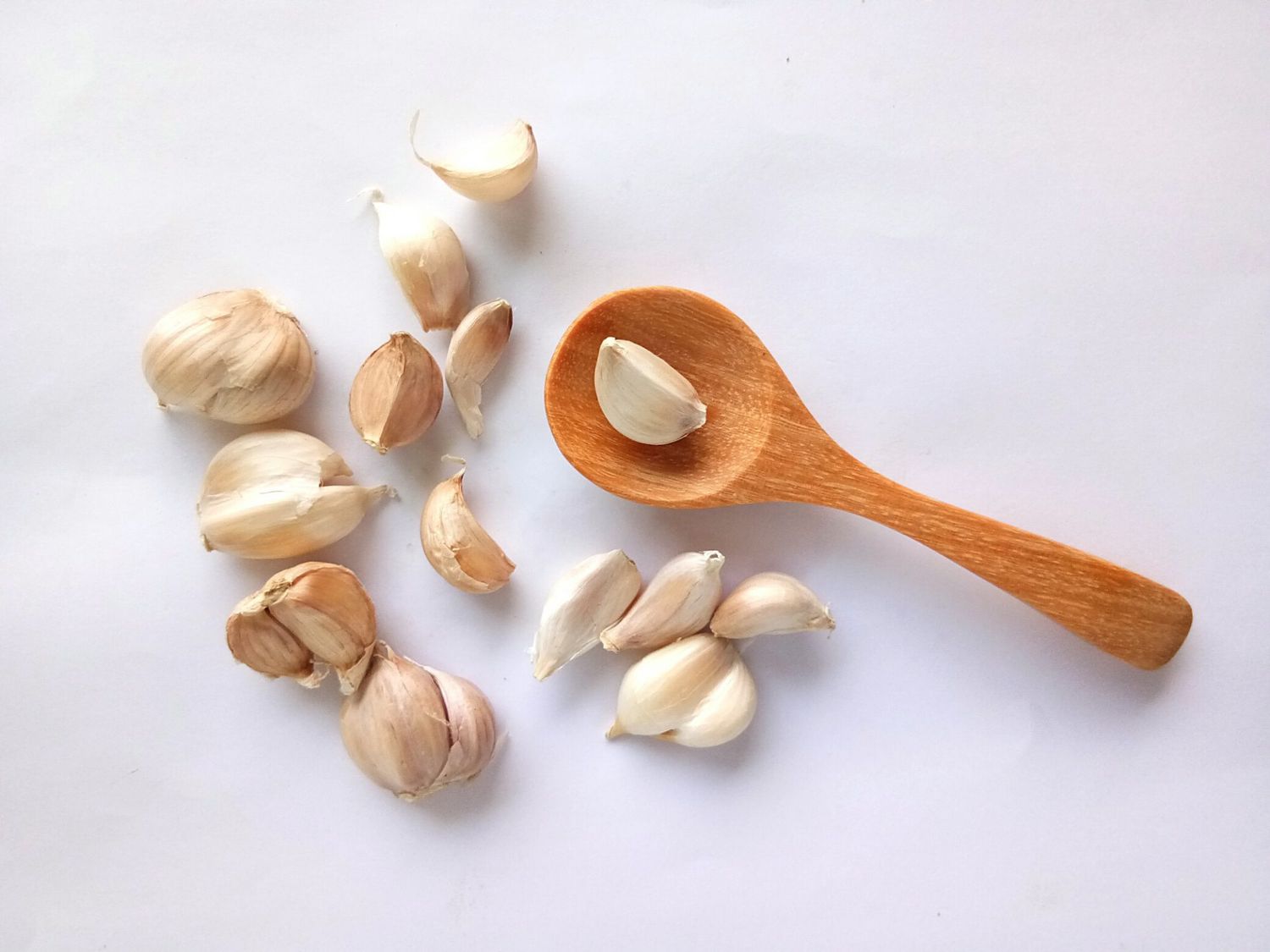
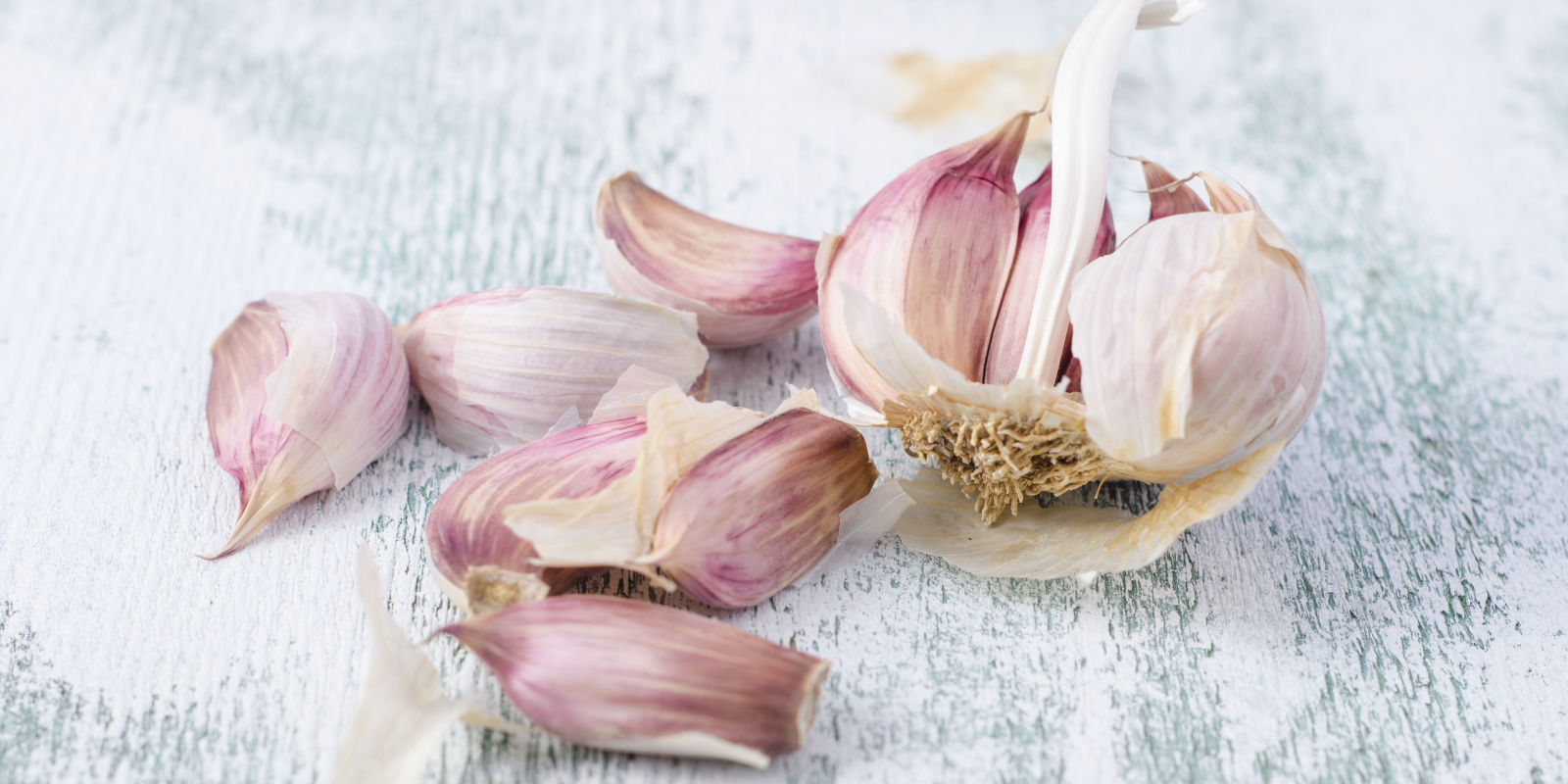
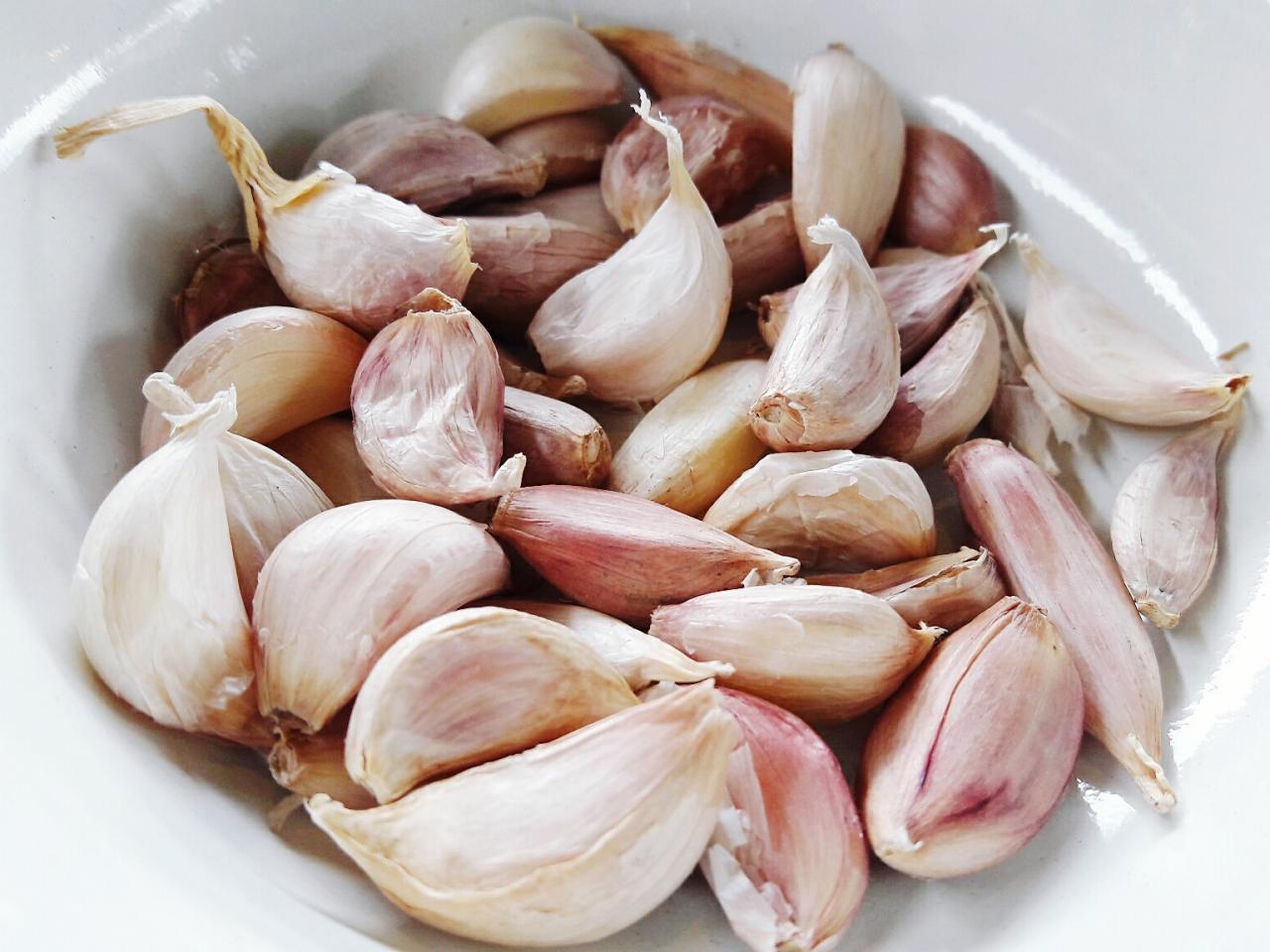
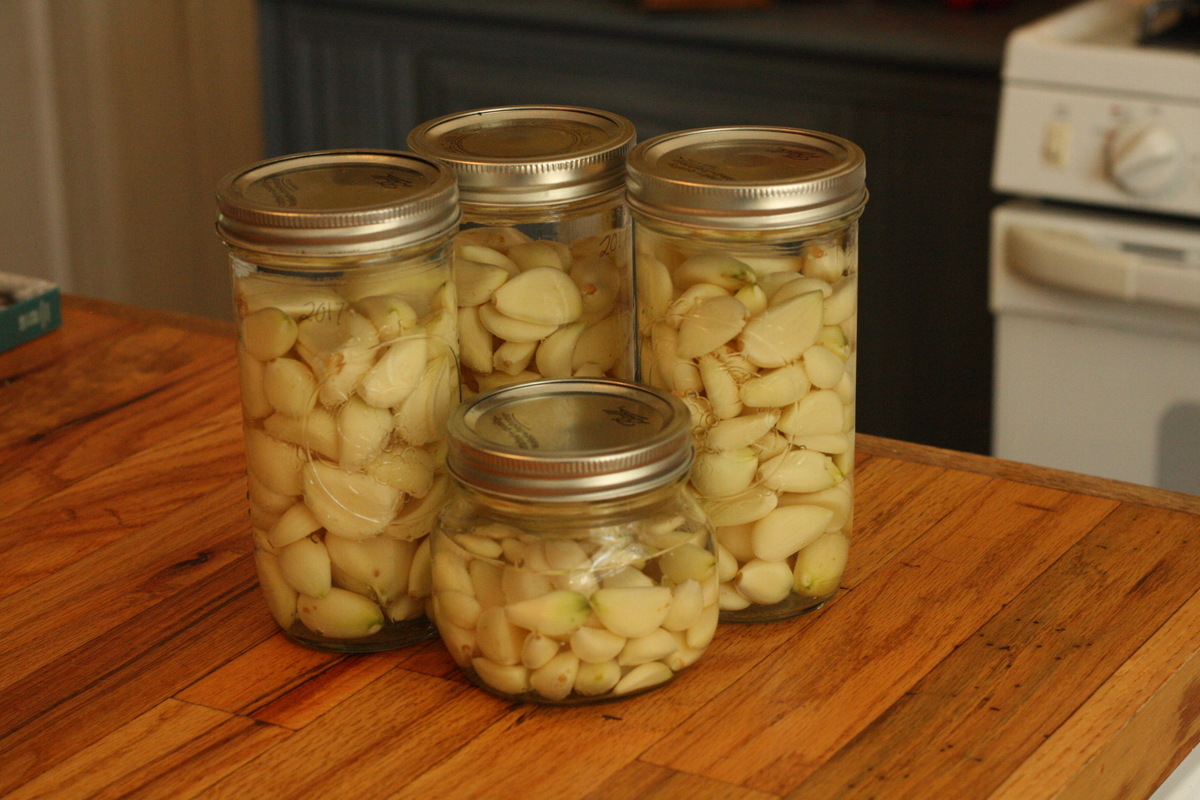
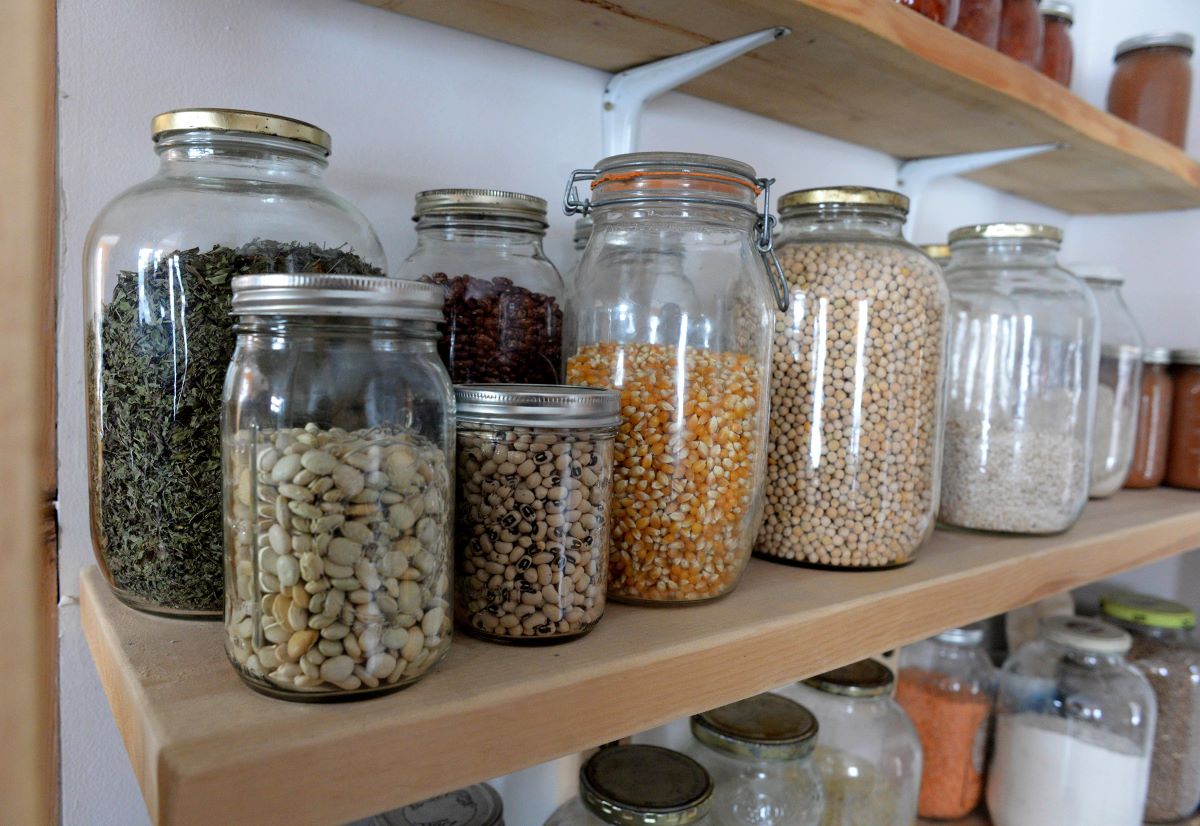
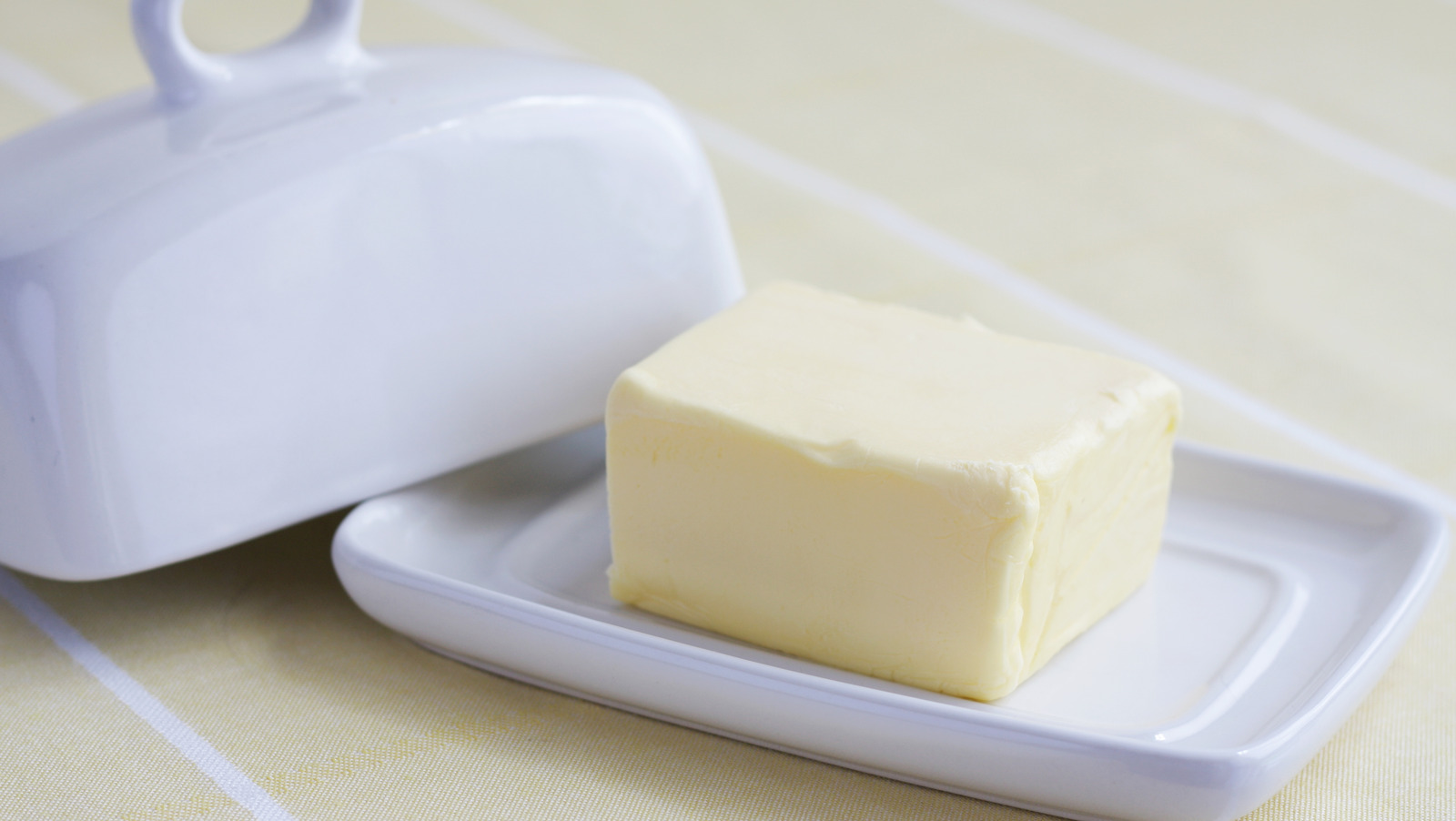




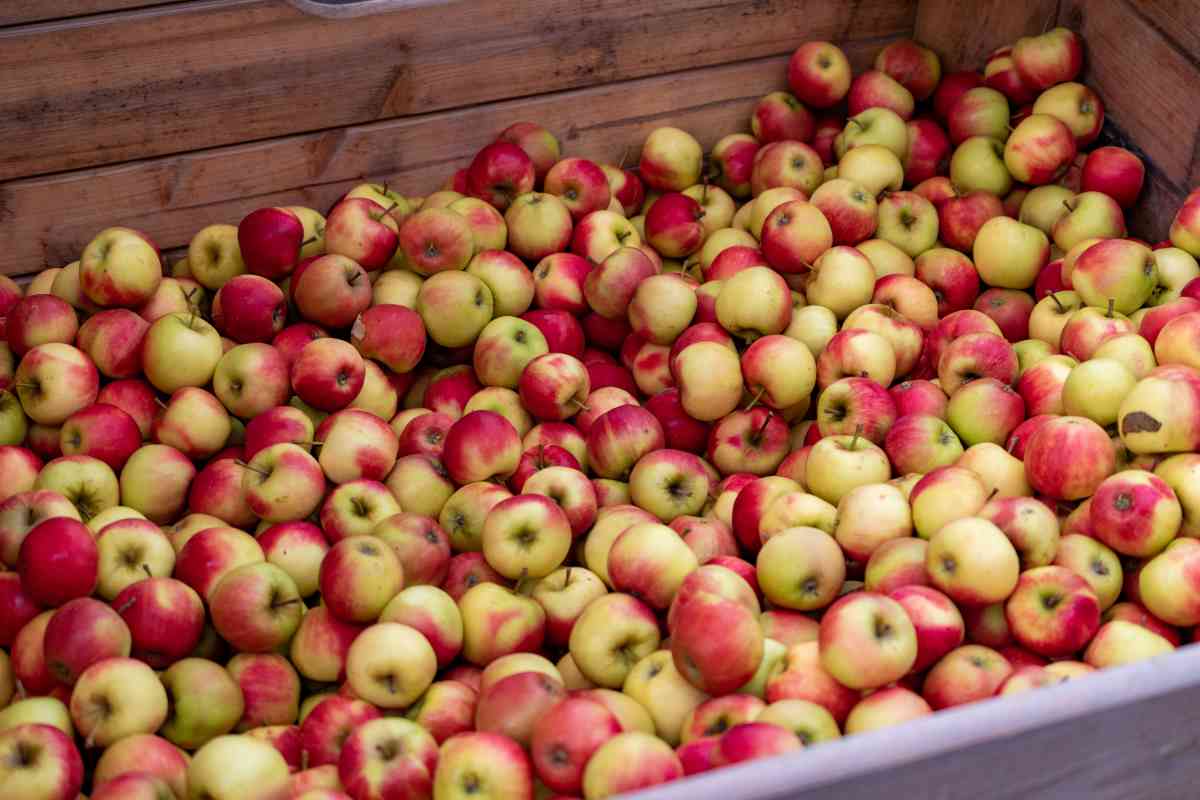

0 thoughts on “How To Store Garlic Cloves Long Term”